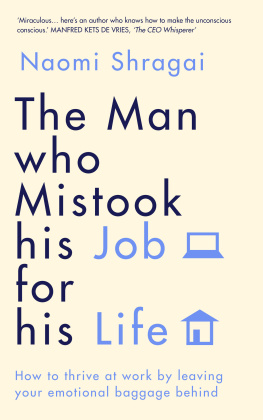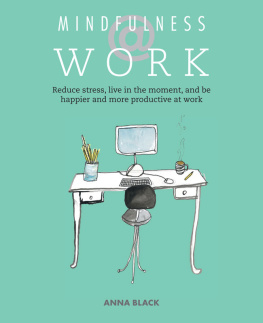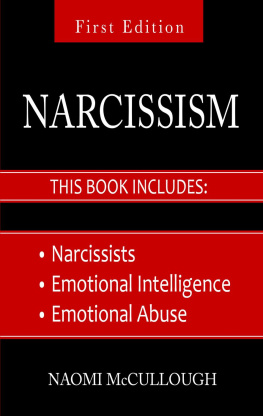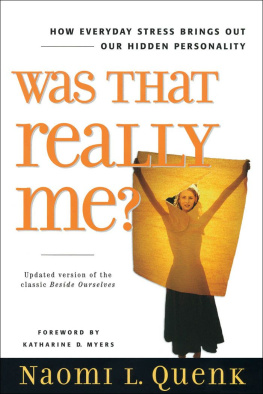
EBURY
UK | USA | Canada | Ireland | Australia
New Zealand | India | South Africa
Ebury is part of the Penguin Random House group of companies whose addresses can be found at global.penguinrandomhouse.com.

First published in the United Kingdom by WH Allen in 2021
Copyright Naomi Shragai 2021
The moral right of the author has been asserted
Cover Design studiohelen.co.uk
ISBN: 978-0-753-55833-1
This ebook is copyright material and must not be copied, reproduced, transferred, distributed, leased, licensed or publicly performed or used in any way except as specifically permitted in writing by the publishers, as allowed under the terms and conditions under which it was purchased or as strictly permitted by applicable copyright law. Any unauthorized distribution or use of this text may be a direct infringement of the authors and publishers rights and those responsible may be liable in law accordingly.
For my mensch of a husband, Charlie
About the Author
Naomi Shragai graduated from the University of Southern California and completed her training as a systemic psychotherapist at the Tavistock Clinic, London. She has more than 30 years experience as a psychotherapist and family therapist in private practice, as well as working in the NHS and private hospitals. She now specialises in helping businesses and individuals resolve psychological obstacles that cause work-related problems.
As a freelance journalist she has written for The Times and the Guardian and since 2008 has been a regular contributor to the Financial Times, where she writes predominantly about the psychological aspects of working life. In a previous career, she was a stand-up comic, working on the London comedy circuit as well as making radio and television appearances. She lives in north-west London.
Authors Note
The names, identities and other features (such as their age, gender and jobs) of my clients featured in this book have been changed and disguised to protect their anonymity. In some cases, composite characters have been created in order to illustrate a general point. I am deeply indebted to them for their generosity and courage in granting permission for their stories to be told.
Introduction: Acting out our internal dramas at work
Do you ever find yourself paralysed by strong feelings at work? Do you overreact to criticism? Do you find yourself responding more like a child than the adult you are with colleagues and bosses? Are you a hardworking, successful person who nonetheless harbours doubts about your competence, despite all the evidence to the contrary?
Such anxieties have only been exacerbated by the seismic changes the world of work has undergone in recent decades, from the digital revolution and demise of the job for life to the new gig economy and, more recently, the #MeToo movement, Black Lives Matter and the coronavirus pandemic. They reflect peoples growing emotional and mental investment in their work something intensified by longer hours, a highly competitive market and an insecure work culture but they, regrettably, have received sparse attention.
These developments have been reflected in my psychotherapy practice, which I began over 30 years ago and has since developed into a business consultancy. To begin with, I dealt with psychotherapys traditional subject matter personal issues and relationship breakdowns. During the past 15 years, however, people have increasingly brought work-related matters to my consulting room. They come with their insecurities of varied forms. Some cannot overcome a compulsion to please others and thereby lose their own creative voice; others struggle with impostor syndrome, fearing they are out of their depth in their job. By contrast, some are perfectionists or too controlling and incapable of delegating tasks, both of which undermine business goals and individuals personal achievement. Others cannot tolerate what they perceive as unfairness in the office, or cope with malicious gossip, cliques or bullying behaviour. Usually, the issue in question is casting a shadow over their happiness, obstructing their career progress and making work feel an unsafe and intolerable place. For many, office relationships have even overtaken family relationships in terms of importance in their lives and the space they take up in their thoughts.
Many who come to see me soon discover that the problems they are facing stem from their childhood experiences. In other words, they find themselves replicating at work the same unwanted family dynamics from their early lives. Once they have come to understand this, the question they ask is: Why would I repeat a pattern that makes me so unhappy? The answer like so many of the ones youll encounter in these pages is surprising but very simple: the pull towards the familiar is strong and its often powerful enough to overtake our conscious desires. For example, being persistently told off as a child can lead to a fear of rejection by an authority figure. One can become so frightened of making mistakes that thinking becomes paralysed and projects are not completed in time. Eventually, this can trigger the sort of criticism one is trying to avoid. Although returning to the familiar is compelling and can feel comforting, there is no growth to be had in what is known.
Many individuals I have worked with have previously tried to overcome such crippling feelings, negative thoughts and destructive habits using techniques such as positive thinking, reading self-help business books or attending workshops only to find themselves further entrenched in their problems. In the business world, psychotherapy is rarely an individuals first port of call. And yet, when people are unable to change their thinking and behaviour or even recognise its origins while knowing they are harming the company or impairing their career development, the answer, I suggest, is to examine themselves more deeply. The stories I will share from my years as a psychotherapist and business consultant, and the questions I will ask you to consider, will show you how.
It has become common to turn to therapy to recover from personal matters such as depression, grief or divorce and yet rarely do people who find themselves struggling consider such self-examination when it comes to work issues. This may be explained, perhaps, by the lingering false notion that work is a predominantly rational and objective world with specific goals, largely free of emotions. Some may even believe that having a therapist is a mark of weakness or for the ill. They may unconsciously fear what might be revealed. As for companies and organisations, they tend to favour quick, concrete solutions delivered through assessments, training and courses rather than taking time to reflect on complexities. Some employers also adhere to the belief that staff should leave their private lives and emotions at home, envisaging workers who are always focused entirely on the job. As Manfred Kets de Vries, the renowned psychoanalyst and professor of leadership development and organisational change at Insead business school, once said to me: For many executives, their ideal employee is someone who is just divorced, lives in an empty apartment and takes a sleeping bag and moves into the office to work 24 hours a day.
The truth is that we all bring our messy emotional lives with us wherever we go, including to work. Alongside our skills, dedication and ambition, we bring to the office our inner lives our sensitivities, misperceptions, fears and insecurities the strong emotions that at times hijack us. This includes our unconscious, where we bury the experiences from our early life that we find too painful or uncomfortable to face.
Next page








